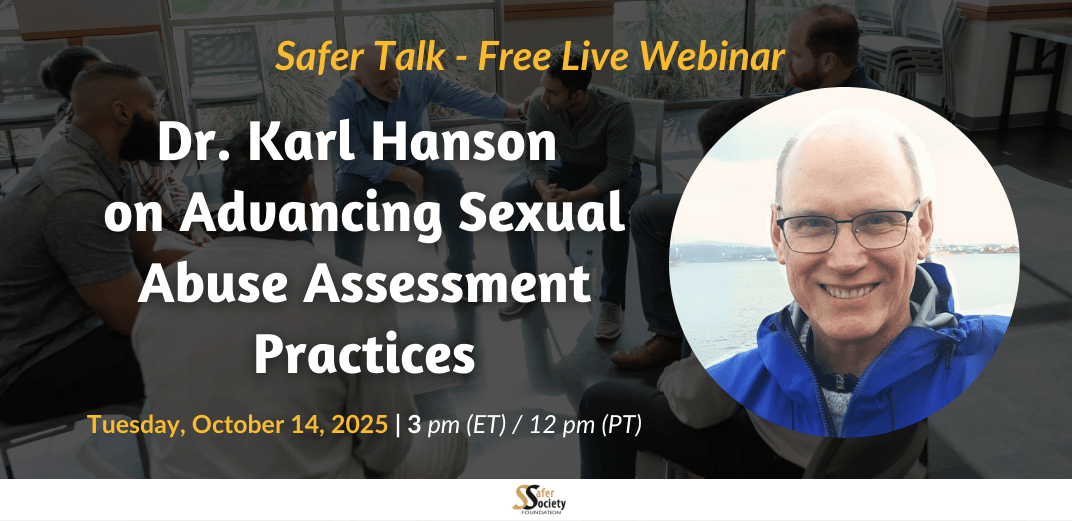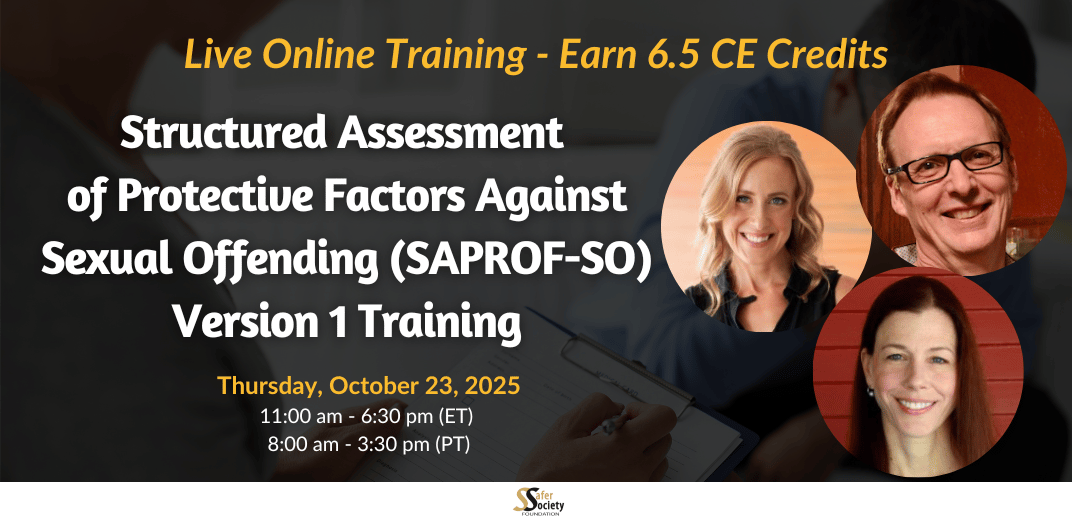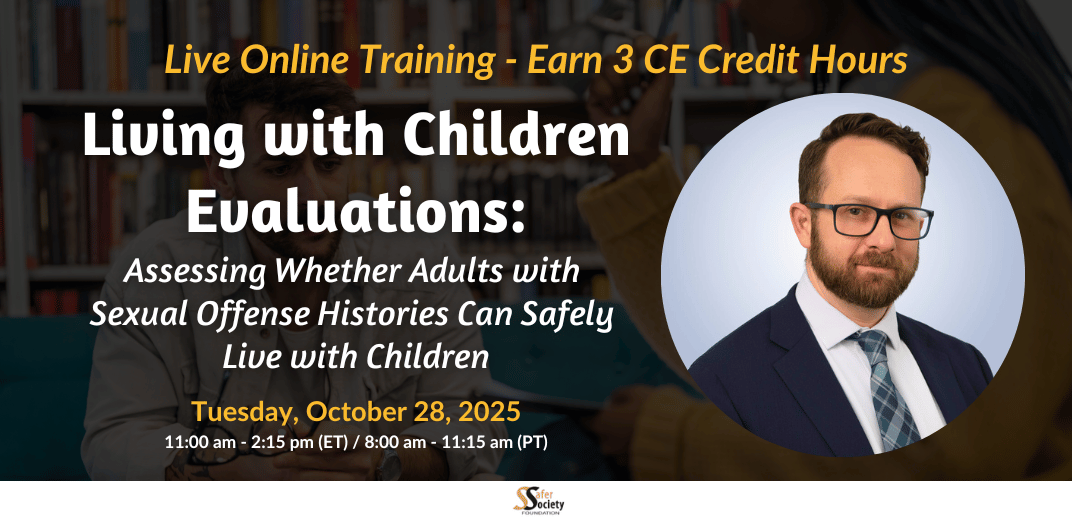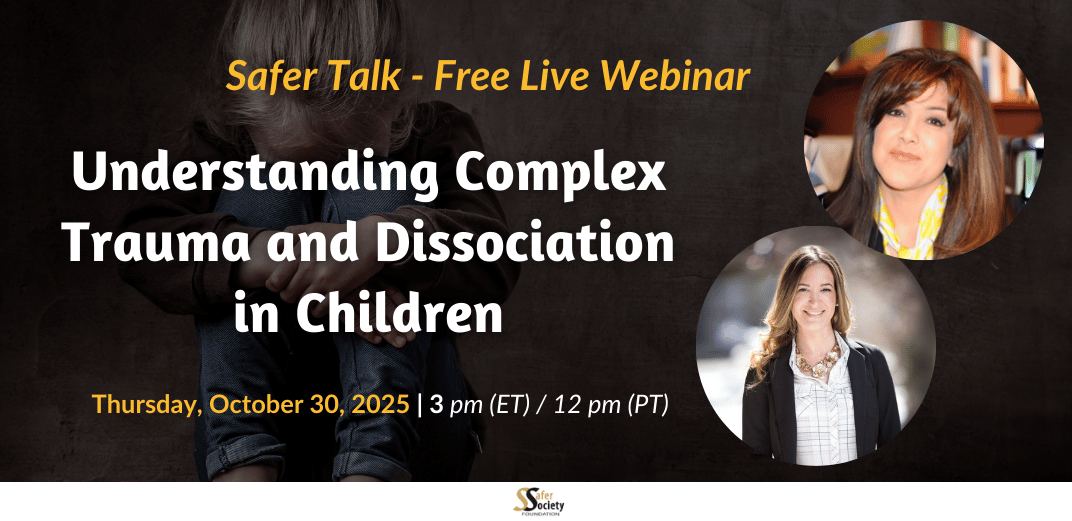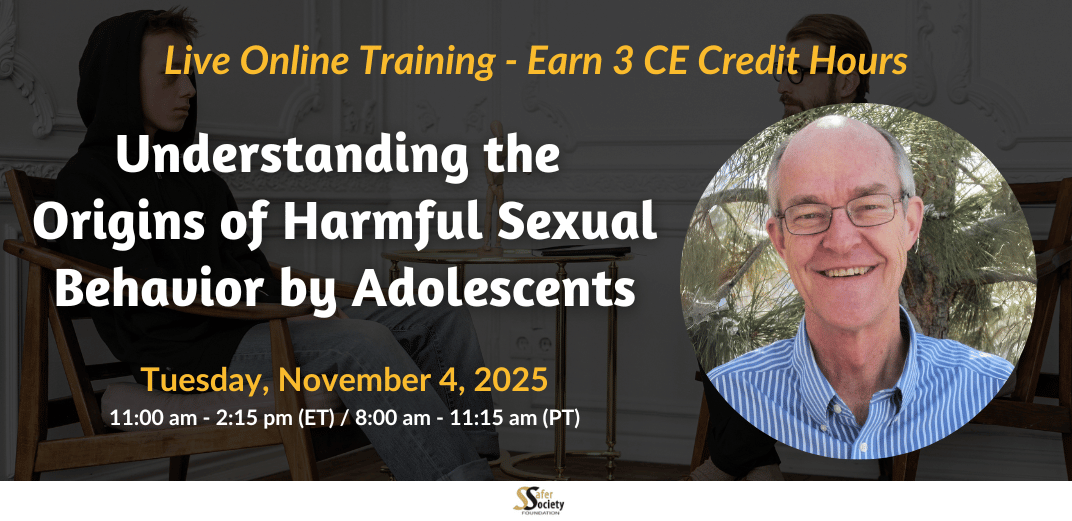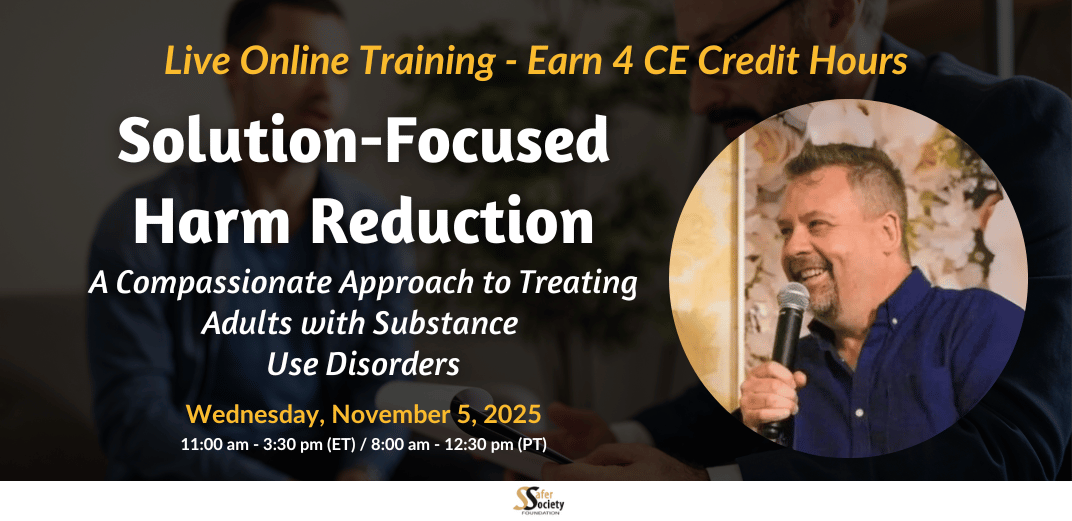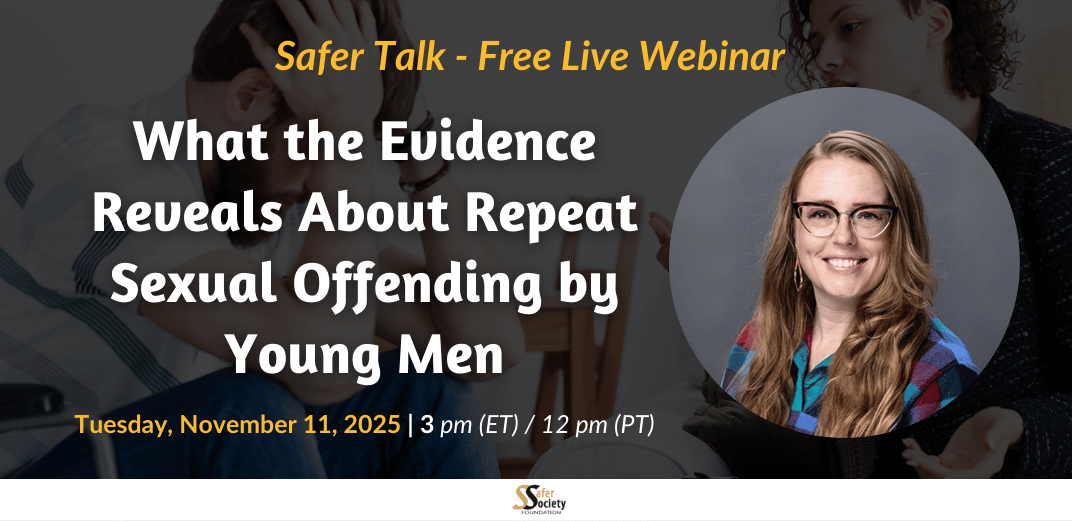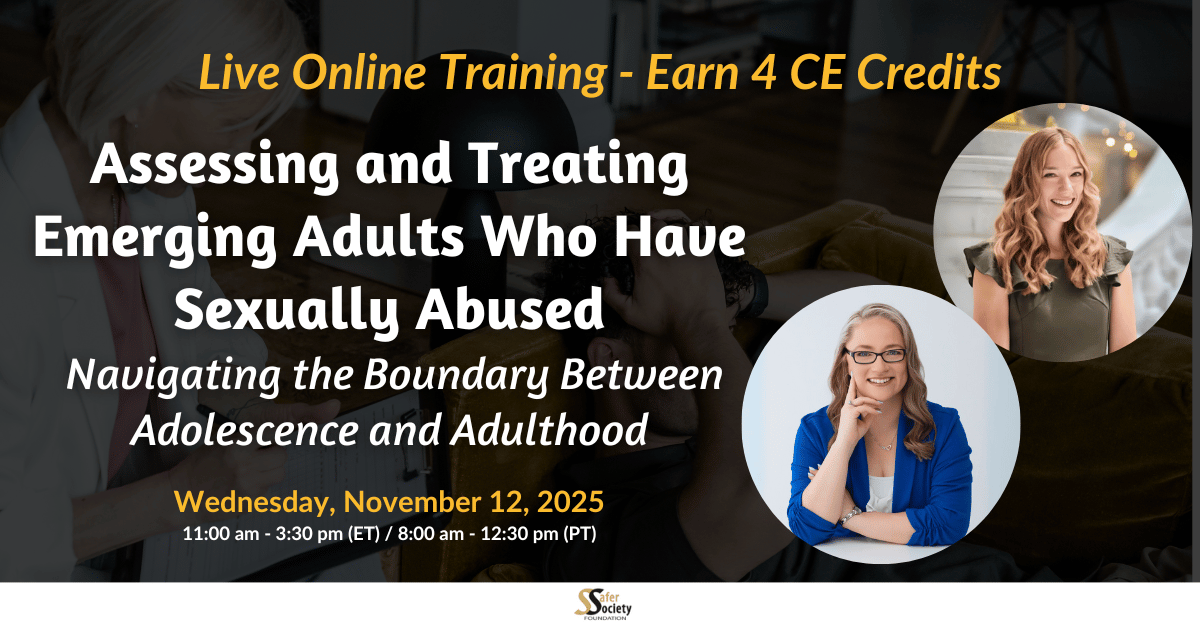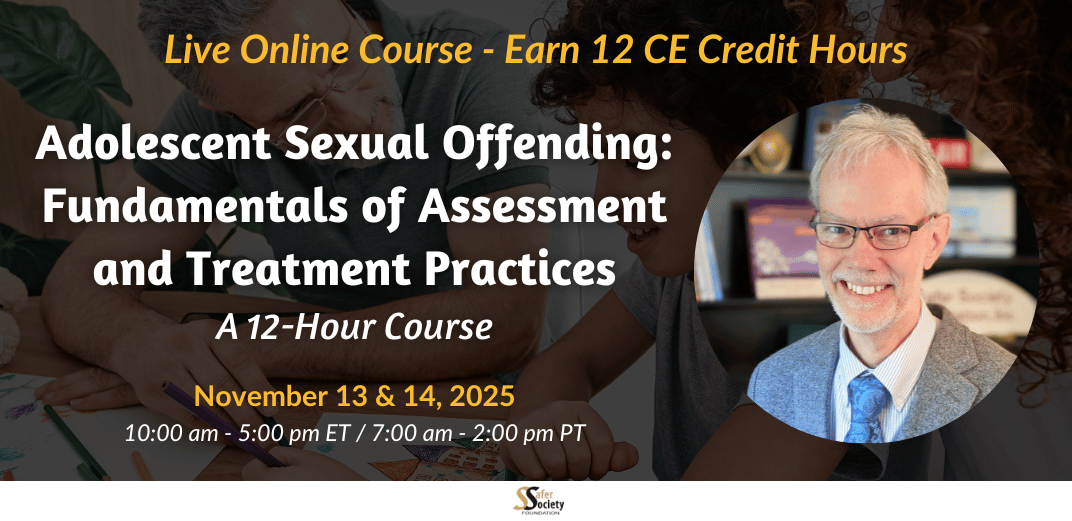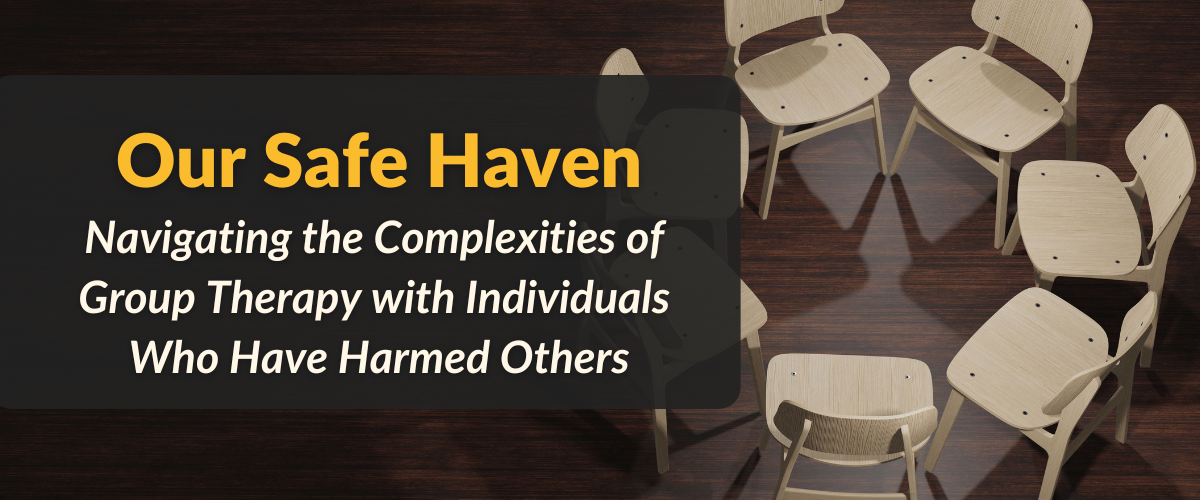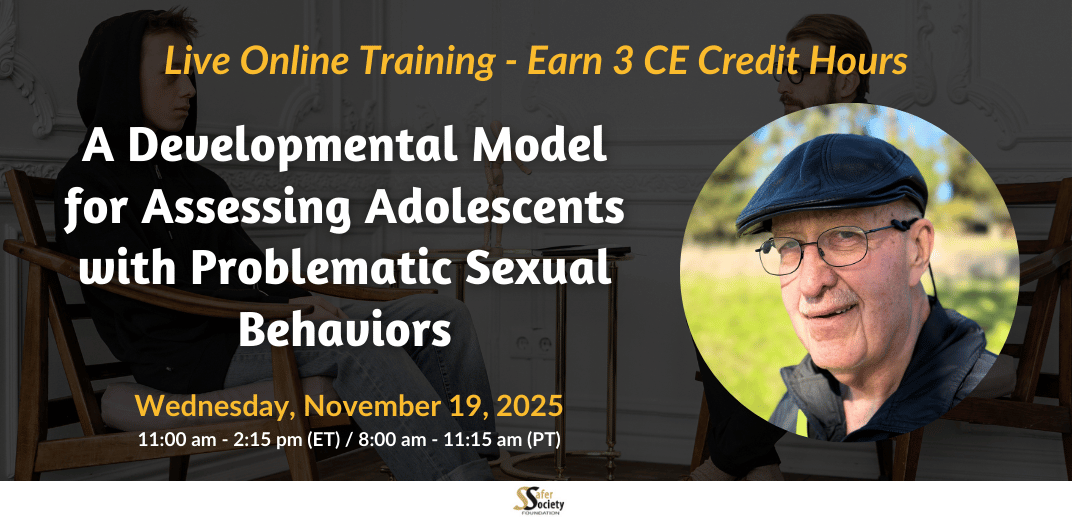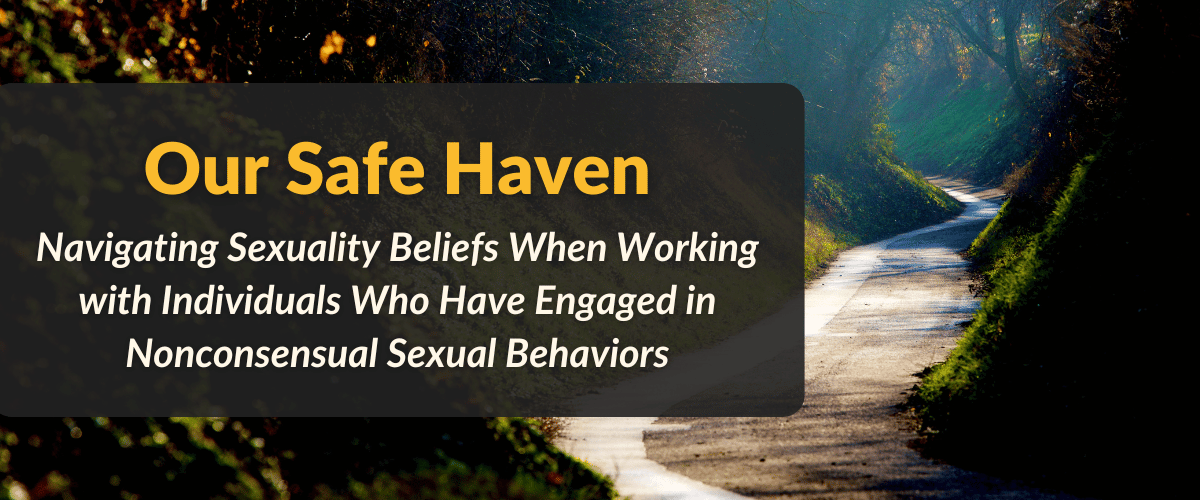
Our Safe Haven: Navigating Sexuality Beliefs When Working with Individuals Who Have Engaged in Nonconsensual Sexual Behaviors
In this Our Safe Haven, we invite you to join Robin Cooper and David Prescott to explore how personal and professional beliefs about sexuality influence our work, client relationships, and the broader field. Each session begins with a focused review of how sexuality beliefs influence professional practice, evolving naturally into an engaging, attendee-driven conversation shaped by shared experiences and professional insights: Session 01: Let’s Talk Shame Around Sexuality and Sex - Examine the role shame plays in client experiences and professional practice. Discuss ways to address shame while fostering healthy, supportive narratives in treatment.

